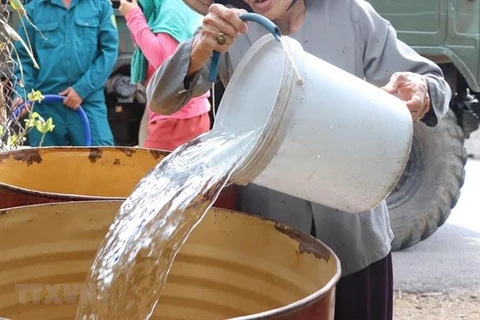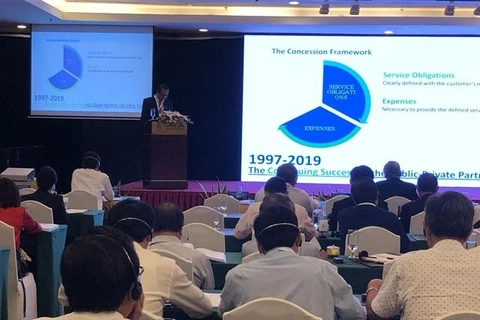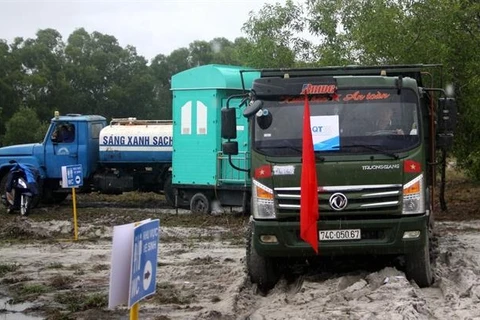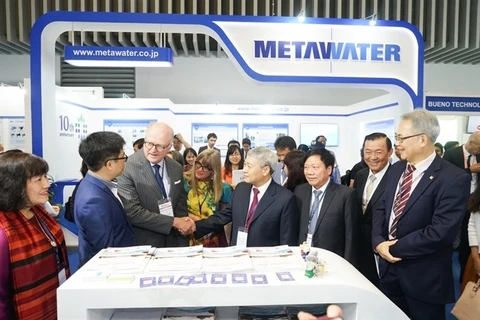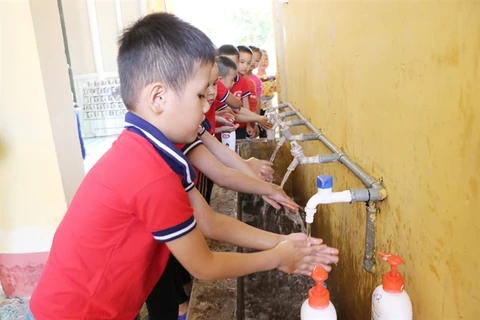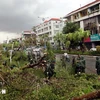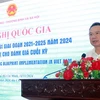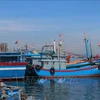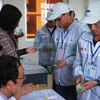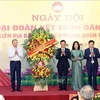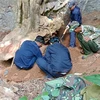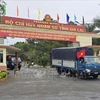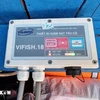 A PSI project model implemented in Phu Thanh commune, Nghe An province is displayed at a conference in Hanoi (Photo: VNA)
A PSI project model implemented in Phu Thanh commune, Nghe An province is displayed at a conference in Hanoi (Photo: VNA) Hanoi (VNA) - Tighter regulations are needed to ensure good quality water is sourced for years to come, according to Nguyen Thi Hong Khanh, from the Ministry of Construction’s Technological Infrastructure Department.
She believes a solid legal framework is necessary to make sure there is plenty of water for future generations.
“We need a scheme for the Water Supply Law, and submit it to the Government and the National Assembly,” Khanh said.
There are more than 200 water supply enterprises in Vietnam, mainly operating as joint stock companies.
The national programme to ensure water supply and prevent water loss in the 2018-25 period has been implemented to promote investment and improve modern and energy-saving water treatment technology. It also establishes criteria for evaluating a safe water supply work.
At a recent conference hosted by the Ministry of Agriculture and Rural Development’s Directorate of Water Resources and East Meets West Foundation in Hanoi, a representative from the Directorate of Water Resources said since 2013, many provinces have actively enacted policies to call on the private economic sector in rural clean water supply works.
While piped water supply systems have increased in rural areas, more than 30 percent of community managed and public water works are out of service.
According to the Directorate of Water Resources’ latest report, most of the rural water supply works in northern Thai Binh province have been transferred to an enterprise for management.
In northern Bac Giang province, 12 local enterprises have built and are managing water plants that supply clean water to about 124,000 people.
In northern Ha Nam province, from two in 2013, now there are 11 enterprises built and managing rural water supply works serving 150,000 people.
In the Mekong Delta province of Tien Giang, there are 15 enterprises investing in water supply systems with 13 among the province’s total 29 plants managed by local companies.
However, the representative said the rural population is sparse while the acreage is large, so constructing water supply works requires high cost but economic efficiency is low. He added that investors must consider before joining.
The conference reviewed the Innovations for Private Sector Development Project (PSI), funded by the Australian Department of Foreign Affair and Trade (DFAT), which has been carried out in Vietnam, Laos and Cambodia.
In Vietnam, the 2 million AUD project, which started in 2016, has succeeded in providing new piped water works for more than 6,600 rural households. The project has coordinated with eight private investors.
In the first phase, lasting 20 months, four private companies, two in northern mountainous Son La province and two in northern Ha Nam province, built plants to supply 3,610 households.
The second phase, from May 2017 to September 2019, provided clean water to 2,990 households in two provinces of An Giang and Nghe An./.
VNA
